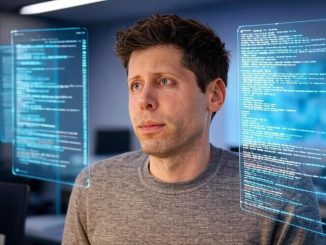
Physical Intelligence, a burgeoning startup in the robotics field, announced a significant milestone on Monday with a $400 million injection of early-stage funding, according to a Reuters report. This round was led by notable investors including Jeff Bezos of Amazon (AMZN), OpenAI, and venture capital firms Thrive Capital and Lux Capital. The funding has propelled Physical Intelligence to a valuation of $2 billion, according to PitchBook data.
The company’s ambition is to develop a universal software solution for robots, named π0 or pi-zero, which can be applied across different robotic platforms without the need for task-specific software development. This approach could revolutionize how robots are programmed and utilized, potentially making robotics more accessible and cost-effective across various industries.
The investment in Physical Intelligence reflects a broader trend where tech giants like Microsoft (MSFT), Google (GOOG), Meta (META), Amazon, and Nvidia (NVDA) are pouring billions into artificial intelligence (AI) and robotics. Accel, a venture capital firm, estimates that funding for AI and cloud companies in the U.S., Europe, and Israel will reach $79.2 billion by the end of 2024, highlighting the sector’s explosive growth and investor confidence.
Physical Intelligence isn’t alone in this space. The robotics AI arena is becoming increasingly competitive with companies like Vicarious, which was acquired by Alphabet-owned Intrinsic in 2022, alongside Universal Robots, Seegrid, and Covariant also making significant strides. This burgeoning field aims to integrate AI deeply into robotics, enhancing their capabilities beyond simple automation to include complex decision-making and interaction with human environments.
Highlighting the potential scale of robotics in the future, Elon Musk has predicted that there could be at least 10 billion humanoid robots by 2040, each potentially priced between $20,000 and $25,000. This vision was further underscored by Tesla’s recent showcase of their latest Optimus humanoid robot at the Robotaxi event, signaling a future where robots play a pivotal role in everyday life.
Last week, Physical Intelligence released a research paper demonstrating the capabilities of their π0 software. The software allowed robots to perform nuanced tasks like folding laundry, bagging groceries, and even the delicate task of extracting toast from a toaster, showcasing a leap towards robots with broader, more human-like functionality.
This investment and the capabilities demonstrated by Physical Intelligence underscore a pivotal shift in robotics technology. Moving beyond rigid, task-specific machines, the future seems to lean towards flexible, AI-driven robots capable of adapting to various environments and tasks. This not only promises to enhance productivity in industrial and service sectors but also opens up new possibilities in consumer applications, where robots could assist in more personalized and complex tasks.
As these technologies mature, the line between software development and robotics engineering will continue to blur, potentially leading to a new era of technological integration in daily life.
Reference: Reuters
- Bulenox: Get 45% to 91% OFF ... Use Discount Code: UNO
- Risk Our Money Not Yours | Get 50% to 90% OFF ... Use Discount Code: MMBVBKSM
Disclaimer: This page contains affiliate links. If you choose to make a purchase after clicking a link, we may receive a commission at no additional cost to you. Thank you for your support!




Leave a Reply